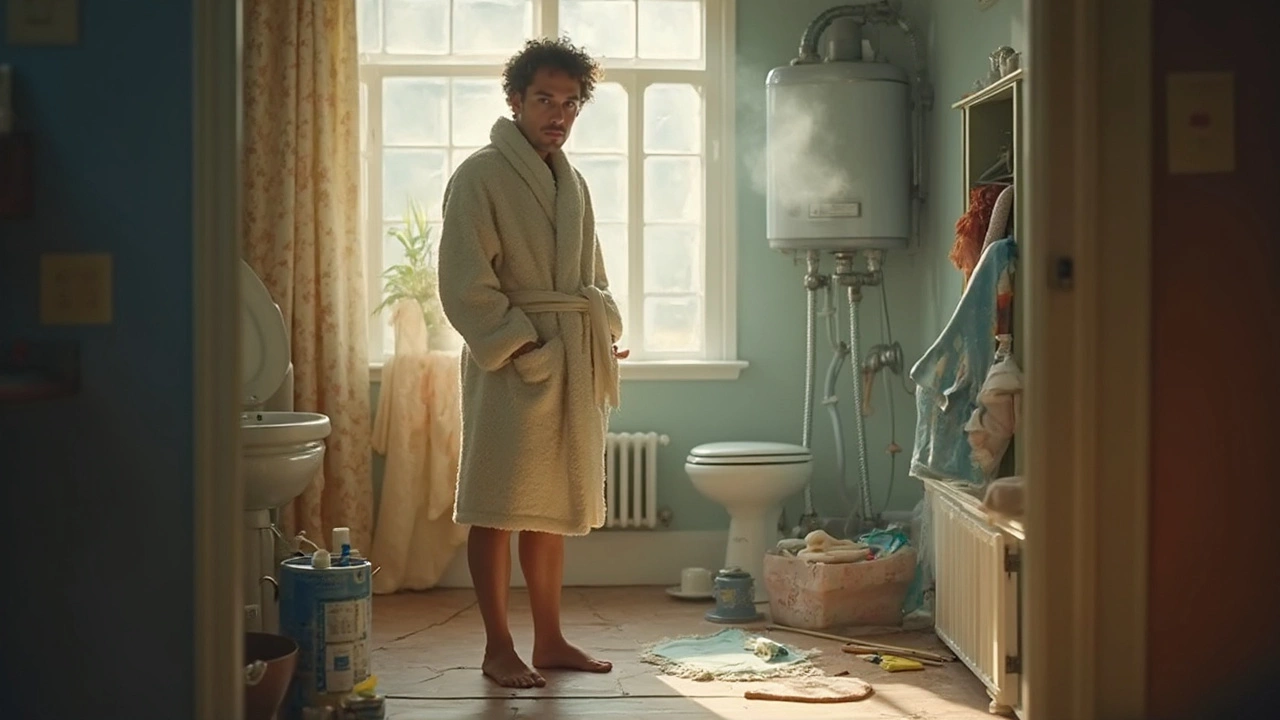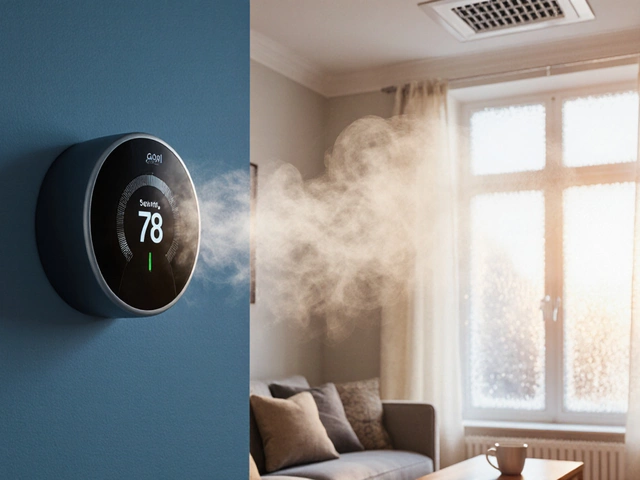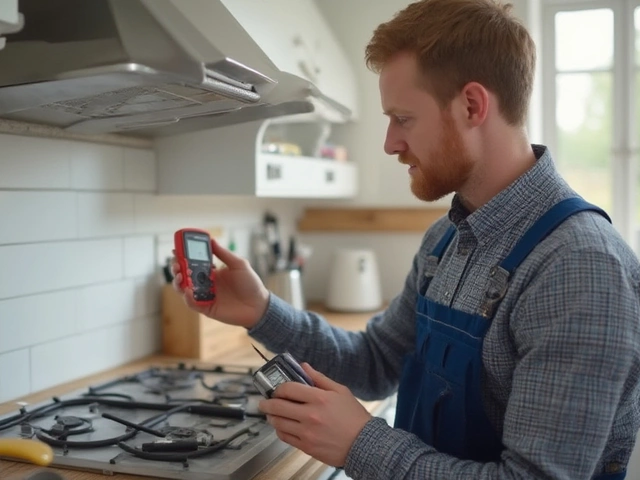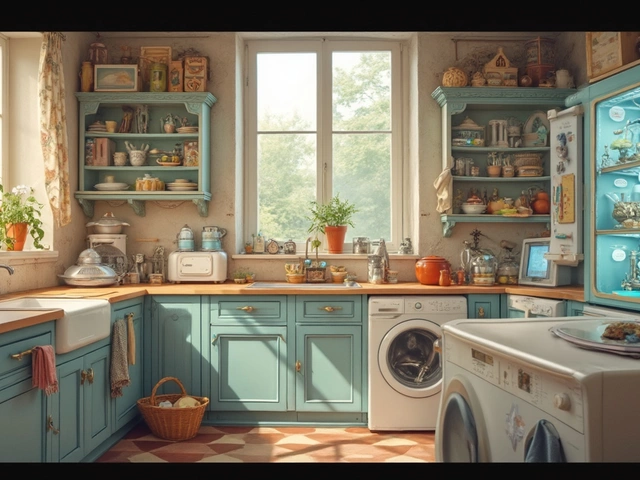If you’ve ever hopped into the shower hoping for a quick blast of hot water and got a freezing shock instead, you know how quickly a water heater can ruin your day. When your heater is more of a water-chiller, it’s tempting to guess what’s wrong. Is it dead, or can you fix it?
The most common problem is, of course, lack of hot water—or lukewarm water that fades fast. But some clues are sneakier. Rusty water, rumbling noises from the tank, or small puddles near the base all point to a heater that’s seen better days. Most folks don’t realize it, but a noisy water heater could mean there’s sediment buildup on the bottom. This makes your heater work overtime (and run up your utility bill).
If your tank is more than ten years old, you’re running on borrowed time. Manufacturers put the average water heater lifespan at 8 to 12 years, depending on how hard your water is and if you’ve kept up with maintenance. If you’re always calling for repairs or your hot water runs out faster than it used to, pay attention—that’s your heater telling you something isn’t right.
- Obvious Warning Signs You Can't Ignore
- How Old Is Too Old?
- Can Repairs Save It or Is It Time to Replace?
- Simple Tips to Make Your Heater Last Longer
Obvious Warning Signs You Can't Ignore
You don’t need to be a plumber to spot the classic signals that your hot water heater is in trouble. If you know what to look for, you can get ahead of a cold shower—or even a flooded basement.
- Hot water heater giving cold or lukewarm water: This is the big one. When the tap never really gets hot, or heat runs out much faster than it used to, the heating elements inside the tank could be failing, or there might be sediment covering them.
- Rusty or tinted water: When you turn on a hot faucet and the water’s rusty, your tank could be corroding on the inside. Sometimes it’s just your pipes, but if it only happens with hot water, that’s a red flag the tank itself is breaking down.
- Strange noises: Popping, banging, or rumbling sounds from the tank mean there’s usually a buildup of minerals or sediment. That junk creates hot spots and weakens the metal, making leaks a bigger risk.
- Water leaks around the base: Even small puddles or dampness near your heater are a big deal. Leaks start small as the metal expands and contracts over the years, but they only get worse—not better. Left alone, a small leak can turn into water damage fast.
- Constant repairs: If you’re always calling your trusty repair guy, you’re probably wasting money. Most tanks start needing more fixes after eight years; if it’s happening every few months, it’s smarter to swap it out than keep patching it up.
Here’s a quick look at how common these warning signs are, based on data collected from national home inspections:
| Warning Sign | Percentage of Cases with Failing Heaters |
|---|---|
| Lack of Hot Water | 80% |
| Rusty Water | 45% |
| Strange Noises | 60% |
| Leaks | 55% |
| Frequent Repairs | 35% |
If you notice any of these, don’t wait it out. Problems with your water heater don’t fix themselves and they almost always get worse (and pricier) the longer you ignore them.
How Old Is Too Old?
If you’re trying to figure out whether to fix or ditch your hot water heater, age is the biggest clue you can get. Most standard tank water heaters last anywhere from 8 to 12 years. If yours is pushing 10 or older, you’re on borrowed time, even if it seems fine right now. After a decade, heaters start to break down, cost more to run, and are way more likely to spring a leak without warning.
Think you’re safe with a tankless unit? They last longer—typically closer to 20 years. But even tankless models start losing efficiency if you skip regular care. Hard water, in particular, can cut a heater’s life almost in half if you never flush or service the system.
It’s easy to forget exactly when you got your water heater, so here’s a simple trick: Check the manufacturer’s sticker near the top of the tank. There’ll be a serial number with a date code—usually the year is in the first four digits. If you’re not sure, just pop the serial into Google with the brand name, and you’ll figure it out fast.
To help you judge if your heater is probably maxed out, here’s a quick breakdown:
| Heater Type | Average Lifespan |
|---|---|
| Standard Tank | 8-12 years |
| Tankless | 15-20 years |
| Heat Pump/Hybrid | 10-15 years |
How can you tell if age is really a problem? Here’s what aging does to your hot water heater:
- The efficiency drops, so your energy bills creep up.
- Hot water runs out much faster, especially during winter.
- You may find rusty or metallic-tasting water.
- Repairs become more frequent and expensive.
If you’re already dealing with some of these headaches and your heater’s old enough to be a middle schooler, think seriously about swapping it for a newer model. Modern heaters are way more efficient—and can save you enough over time to pay for themselves.
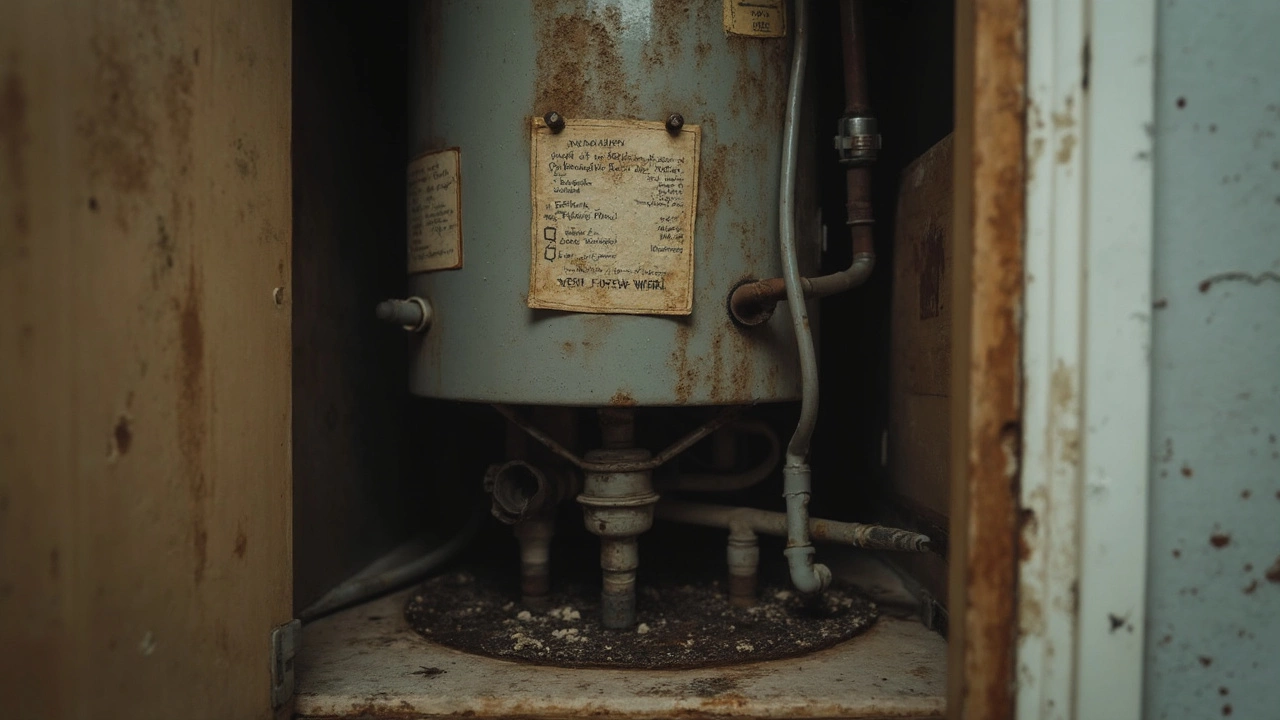
Can Repairs Save It or Is It Time to Replace?
Trying to decide if you should fix your water heater or just bite the bullet and replace it can feel like a guessing game. But there are solid rules you can follow. If your unit is under six years old and the problem is minor—a broken thermostat, a worn-out heating element, or a bit of sediment stuck inside—you can usually get away with a repair. Parts for these jobs are cheap and most plumbers handle them fast.
Things change if the tank itself is leaking. There’s no patch for this—once the tank is cracked or rusted through, you’re looking at a replacement, no way around it. The same goes for heaters that seem to never stop making noise or are running up your electric or gas bill.
- Hot water heater leaks? Time to replace.
- Noises or rumbling that returns after draining? Replacement is usually best.
- Hot water running out faster and faster? Check the age—a new heater could actually cut your energy usage.
- Rusty or discolored water? If it’s only from the hot tap, your heater could be rusting from inside. Replacement is likely.
Some repairs can buy you time, but don’t throw good money after bad. If you’re calling a plumber more than once a year and your heater is over 10 years old, a replacement is the smarter financial move. On average, a typical repair costs anywhere from $150 to $500, but a brand-new standard tank heater (installed) is usually $1,200 to $2,000.
| Problem | Average Repair Cost (USD) | Replace Recommended? |
|---|---|---|
| Heating Element | $200 | No |
| Thermostat | $175 | No |
| Leaking Tank | N/A | Yes |
| Pressure Relief Valve | $150 | No |
| Old Unit (10+ years) | Varies | Yes |
One thing people forget: newer units are way more efficient. If your old one’s costing you $400 a year to run and a new one may cut that by a third, a replacement pays off quicker than most folks expect.
Simple Tips to Make Your Heater Last Longer
Want to get a few extra years out of your hot water heater? Little habits can make a big difference, especially if you’ve already had your tank for a while. A few minutes of care once or twice a year can actually spare you a lot of trouble later on.
- Drain the tank yearly. Sediment settles at the bottom of the tank no matter what kind of water you have. Draining a few gallons every year helps flush out minerals that make your heater work harder. Less stress on your system means less chance it breaks down early.
- Check the pressure relief valve. This tiny part keeps your tank from building up too much pressure. Just pull up the lever and see if water rushes out the pipe. If nothing happens, or water just sort of dribbles, replace the valve sooner than later.
- Set the thermostat to 120°F. Some heaters come cranked up too high from the factory. Keeping the temp at 120 stops mineral buildup and saves on your power bill—plus it’s hot enough for showers, but not so hot you’ll burn yourself.
- Wrap the tank in an insulating blanket—especially if the heater sits in a cold garage or basement. Older heaters aren’t wrapped as well, so adding a jacket keeps heat in and your bills down.
- Look for small leaks or rust once in a while. Catching small trouble early can head off a major problem, like a flood.
If you try these steps but your hot water heater is still giving you problems, or you notice drips or rust that gets worse, it’s probably time for a bigger fix. But with a little routine care, you can stretch the life of your heater—and squeeze a little more value out of what you’ve already got.

